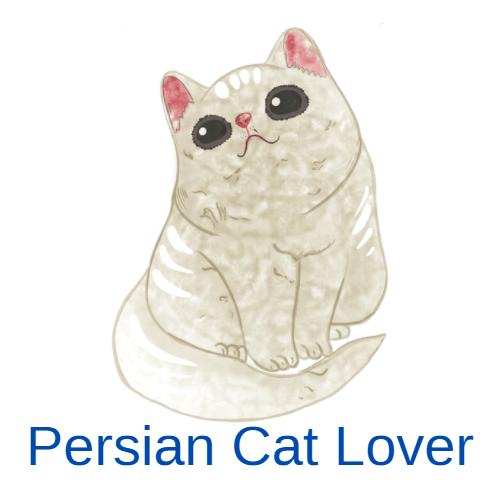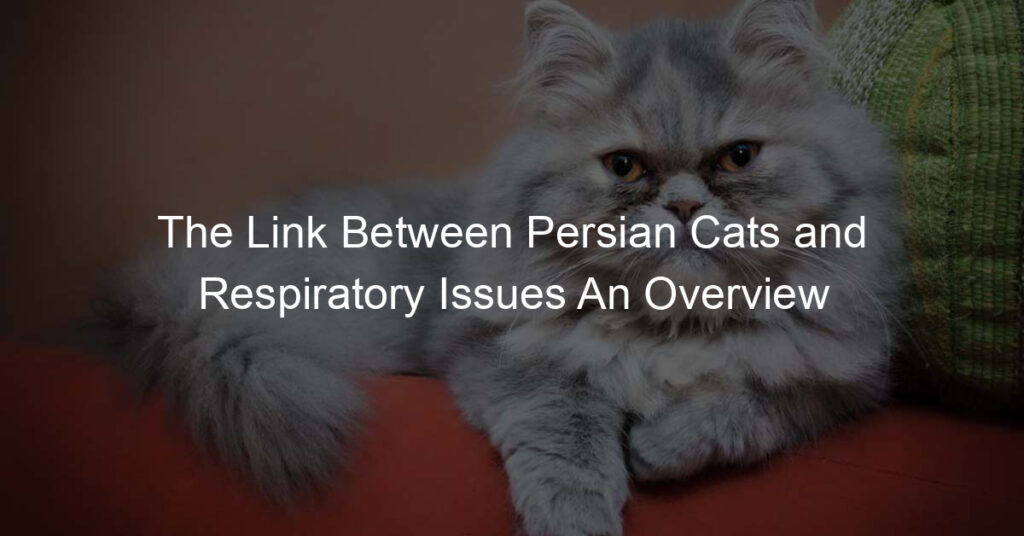Persian cats are known for their mellow and sweet dispositions but can also become sad or stressed. Fortunately, there are some common signs that you can look out for to help identify when your Persian cat isn’t feeling its best.
One of the most obvious signs of a distressed feline is changes in behavior. For example, if your usual social and active Persian cat suddenly becomes distant and withdrawn, it may be a sign that something isn’t right.
Another indicator of distress is an increase in vocalizations; whether this involves meowing more often than usual or using different tones than normal, changes in vocalizations can be indicative of sadness or stress.
Changes in eating habits can also signal depression in cats. If your ordinarily voracious Persian cat is skipping meals or not eating as much, then it could be a sign that they are feeling blue.
Additionally, if your Persian cat stops grooming itself and its fur becomes matted or unkempt, this can also be an indicator of sadness.
Paying attention to your cat’s body language can help you identify when something isn’t right. If your once confident Persian cat has become timider with its tail tucked between its legs and ears flattened against its head, it may be time to pay them extra attention and provide some extra comfort.
Persian cats are wonderfully loving companions and make wonderful pets. However, taking the time to watch out for signs of distress in your furry friend will help you know when they need some extra TLC.
How Can You Help an Unhappy Persian Cat?
If you think your Persian cat may be feeling down, there are a few things you can do to help.
Firstly, it is essential to make sure that its environment remains safe and secure by providing plenty of hiding spots or areas where they feel comfortable.
Additionally, spending extra quality time with your Persian cat, whether providing them with physical affection such as petting and brushing or engaging in interactive play, can help lift their spirits.
It is also beneficial to provide them with enriching environmental stimuli; try setting up activities such as food puzzles or placing bird feeders outside windows, so they have something interesting to look at and interact with.
Another thing to know is that cats can benefit from pheromone-based products such as Feliway, which can help reduce stress and promote relaxation.
Overall, with a little bit of love and care, you can help your Persian cat return to its normal happy self. Keeping an eye out for signs of stress or sadness is the first step in ensuring that your cat remains content and healthy.
By trying to understand what makes your Persian cat tick, you can help them remain a loving presence in your home for years to come.
Is There Any Way To Know What Is Causing My Persian Cat’s Sadness?
In some cases, it can be challenging to identify the exact cause of your Persian cat’s sadness.
To help you better understand why your cat may be feeling down, consider taking them for a check-up at the vet, as they can provide advice and recommendations tailored specifically to your pet’s needs.
Additionally, observing their behavior in different contexts and environments can also yield valuable insights into what is making them feel unhappy.
Remember, while there isn’t always an easy solution when it comes to helping an unhappy Persian cat, by paying close attention to their body language and vocalizations, you can help give them the support they need to feel happier again.
With a little bit of extra effort, understanding and empathy, you can help ensure that your Persian cat stays happy and healthy. Taking the time to recognize their signs of distress and giving them plenty of love and attention will go a long way toward making them feel more content once again.
With the proper care and support, every Persian cat can live its best life!
Are There Any Illnesses That Might Make a Persian Cat Sad?
Unfortunately, yes. Several medical conditions can cause depression in cats, including thyroid disease, kidney failure, and cancer. Therefore, it is crucial to watch for any behavioral changes that could indicate a health issue and take your cat to the vet if you suspect something is wrong.
Further, certain medications may also affect your cat’s mood; speak with a veterinarian before giving your Persian cat any medication or supplements.
Also, some cats may experience seasonal depression or SAD (seasonal affective disorder), which has been known to occur during winter months when days are darker and colder.
If this is the case for your Persian cat, providing them with extra love and attention, as well as plenty of enrichment opportunities, can help keep them feeling content.
Fortunately, with the right support, most cats can fully recover from illness or SAD. It is important to remember that no matter what issues your cat may be facing, you are in a position to help them through it and give them the best chance for an enjoyable life!
Can the Diet of a Persian Cat Affect Its Mood?
Absolutely. A healthy and balanced diet can help ensure that your Persian cat gets all the nutritional requirements needed to stay happy and healthy.
Speak with a veterinarian about what kind of food would be best for your cat, as well as how often they should be fed. Additionally, providing them with treats as rewards for good behavior will also help keep them feeling content.
Providing plenty of variety in their diet can also help them combat boredom; try incorporating different types of meat, such as tuna or salmon, into their meals or introduce new toys and activities to keep them entertained.
In conclusion,
Recognizing when a Persian cat is sad and taking the necessary steps to make sure they are feeling happy once again is essential for every pet owner. With a bit of extra effort and understanding, you can help ensure that your Persian cat is feeling content, healthy, and loved.
This article provided general information only. Consult with a veterinarian or other animal health professional for more detailed advice tailored to your specific situation.
If you have any questions or concerns about the health or behavior of your pet, be sure to contact your local veterinarian immediately. They will be able to provide more detailed guidance on how best to help you and your Persian cat.














